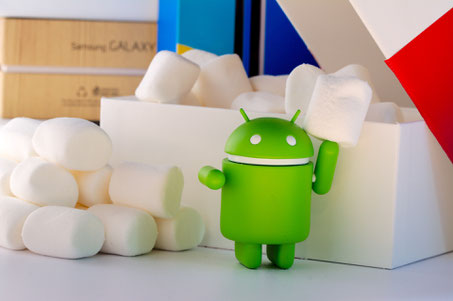
As I promised, in this week’s English Breakfast, I am going to focus on the strengths and weaknesses of Google’s Android operating system. Is it suitable for educational purposes? Last week, I wrote an article about iOS from Apple. With Android offering much more affordable alternatives, is it suitable to run in an educational environment? Android is an open source platform provided by Google. So, by definition, it should be more suitable for educational purposes, right? Today, I am going to reflect on why opting for Android might be a real consideration for students.
First & Foremost, It Is Open
Android is an open platform. Any manufacturer can opt for it and run it on their devices. No matter the version (e.g. 5.1, 6.0, 7.0, etc.). That is advantageous when it comes to creating specific apps. They could easily be integrated within the ecosystem with much less input than on iOS. The downside to it, the quality standards are a lot lower. Looking at the Google Play Store, one can find applications that also run on iOS. So, with a little bit of research, the quality argument is irrelevant.
Not irrelevant are the devices used in the educational environment. I am not going to reflect on them too much in detail. But one needs to consider the version of Android they are running. As updating them to higher versions of the operating system is not a given. And of course, are the applications suitable for the version of Android running on the device and can they be updated on that actual device?
Google Play Store
Google’s business is to make money from data. Although it does not cost anything to use their services, Google sells data or provides effective strategies to place advertisement. Using their services, Google gathers enough data to create personal profiles. Also, when they are anonymous. That brings me to the difference between anonymization and singling out. It is almost like in school: If the teacher says that the boy with the brown hair, the white shoes and the black jeans need to come forward, anyone in class knows who that student is. But it is still anonymous, as the teacher never mentioned a name.
With all the information Google is gathering about me, knowing my name is almost irrelevant. That is, why I do not use the Google search engine to start with. But that is my personal approach and does not disqualify Google in education. The Google Play store is much more interesting. With every synchronization of an Android device or any update, Google is going to gather more and more information. Now, it says that those pieces of information are not going to be sold, but it could be a shareholder value to sell them in the future. And then?
The Security Aspect

We ran different tests on different devices with engaged IT teachers. The result? Depending on the device, Android is easier to hack than any other operating system. Speaking as a father, that would be my worst nightmare. If my daughter was subject to kidnapping or if her data won’t be secure. But it is the goal of education, to teach the students about the risks and the great potential of technology. Taught correctly, I would not worry about that too much. Just something to bear in mind.
Know the Weaknesses
Reading this article, one could argue that I am hugely against anything coming from Google. That is incorrect. I think, Android is a very valid option for students to use in school. Bearing budget restrictions in mind, more affordable devices are very attractive and an easy opportunity to get into the world of portable devices. Especially in primary and lower secondary schools, when the budget is very limited and devices could be damaged very easily, cheaper but capable devices are the way to go. If the teachers raise the students’ awareness of the security leaks and teach a well balanced approach of usage, Google’s Android is going to be a very valid and attractive option.
